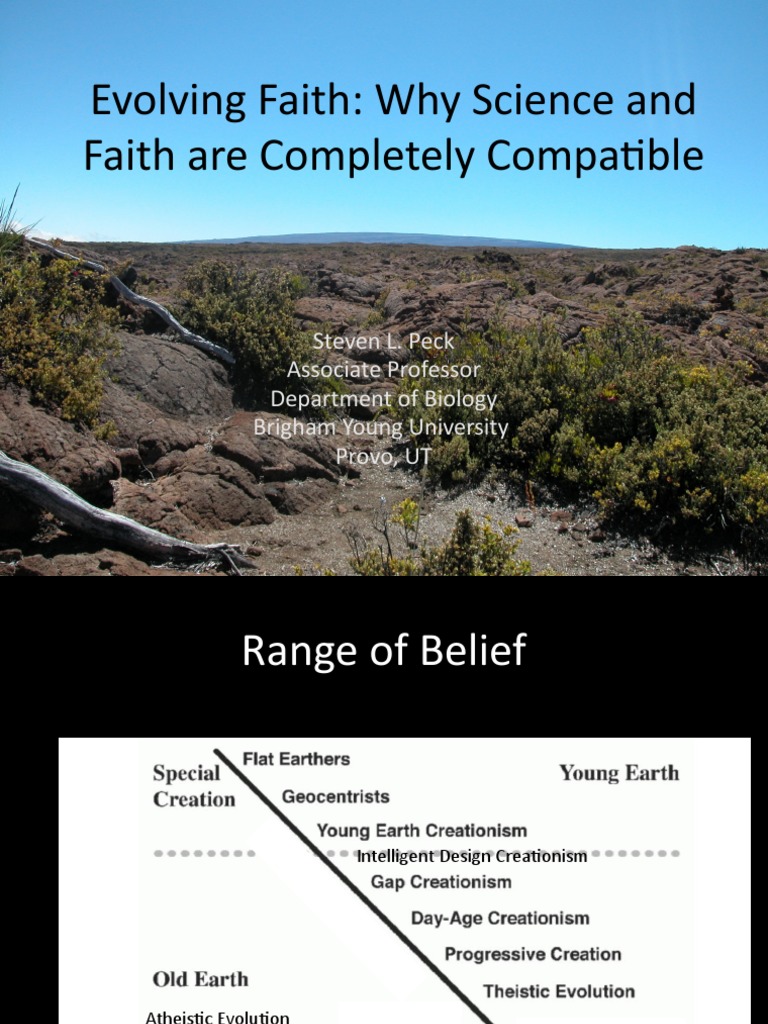The intersection of faith and science has long been a point of discussion, debate, and sometimes discord. In an age characterized by rapid advancements in scientific understanding and technological innovation, one might ponder: Can faith coexist with the empirical rigor of science? This question poses a challenge not only to religious ideologies but also to the very essence of human understanding itself.
In the context of the Bahá’í Faith, the relationship between faith and science is not merely a topic of philosophical inquiry; it is a foundational principle underlying its teachings. The Bahá’í teachings advocate for a harmonious coexistence of faith and reason, asserting that both are essential for the advancement of civilization. This notion invites both believers and non-believers to reconsider their perspectives on these two dimensions of human experience.
At the heart of Bahá’í thought is the assertion that religion and science are two complementary systems of knowledge that explore different facets of reality. While science investigates the material world through observation, experimentation, and deduction, religion explores the spiritual, moral, and ethical dimensions of human existence. Abdu’l-Bahá, the son of Bahá’u’lláh, emphasized that true science and true religion must ultimately be in harmony, as they both stem from the same divine source. This assertion invites a deeper inquiry: When there appears to be a conflict between scientific findings and religious beliefs, could that conflict stem from misinterpretation rather than truth itself?
The Bahá’í teachings elucidate the importance of continuous investigation of truth. In the quest for understanding, individuals are encouraged to employ both reason and intuition. This dual approach facilitates a comprehensive grasp of life’s complexities, where scientific exploration does not negate spirituality but rather enriches it. For instance, Bahá’ís believe in the progressive revelation of spiritual truths. As human comprehension evolves, so too does the understanding of spiritual concepts, paralleling scientific advances that refine our grasp of the physical universe.
The concept of unity is paramount in Bahá’í teachings, particularly in relation to faith and science. The Bahá’í Faith emphasizes the oneness of humanity and the unifying nature of truth. As we tread down the scientific path, we uncover universal laws that govern the natural world—laws that resonate harmoniously with spiritual truths. For instance, the law of interdependence in ecology can be seen as reflective of the spiritual principle of interconnectedness among all people. Such insights exemplify how scientific revelations can illuminate spiritual realities, enhancing our understanding of both realms.
In exploring this relationship, one cannot overlook the historical context in which science and religion often found themselves at odds. The saga of Galileo serves as a poignant reminder of the struggles the scientific community has faced in reconciling empirical observations with established religious doctrines. However, in the Bahá’í paradigm, such historical conflicts are regarded as opportunities for greater enlightenment. The understanding that both science and religion can evolve and expand is crucial for fostering a discourse that transcends divisive boundaries.
Furthermore, the Bahá’í teachings advocate for the application of science to societal issues. The idea that knowledge must be employed in service to humanity is foundational. As Bahá’ís engage in social action, they are encouraged to harness scientific knowledge to address pressing issues such as poverty, health, and education. This application of science should not be devoid of ethical considerations; rather, it must be infused with moral imperatives that consider the well-being of all. The interplay of faith and science thus manifests not only in theoretical discourse but also in practical applications that seek to better the human condition.
However, embracing the duality of faith and science entails inherent challenges. As people navigate this dual landscape, questions inevitably arise: How does one reconcile personal faith with scientific skepticism? How can the spiritual truths espoused by religion be substantiated through scientific inquiry? These questions may induce a degree of disorientation, especially for those entrenched in dichotomous thinking. Yet, the Bahá’í perspective serves as a compelling argument for the synthesis of these two realms, encouraging individuals to engage with uncertainty while steadfastly seeking truth.
Moreover, ethical considerations of scientific advancement require vigilant scrutiny. As technology advances and scientific exploits burgeon, the ethical dilemmas surrounding issues such as genetic engineering, artificial intelligence, and environmental sustainability proliferate. In the Bahá’í context, such matters are best approached through a lens of moral reasoning informed by spiritual principles. The commitment to justice, equality, and the promotion of human dignity remains foundational to navigating these complex terrains.
Ultimately, the Bahá’í teachings invite a holistic approach to the relationship between faith and science. This approach necessitates an ongoing inquiry into the nature of truth, wherein both realms can be seen as complementary rather than conflicting. By embracing the dual embrace of spirituality and empirical knowledge, individuals can cultivate a more profound understanding of their existence, illuminating their path in the quest for personal and collective advancement.
In conclusion, the engagement of faith and science presents a vibrant tapestry woven with threads of inquiry, understanding, and ethical responsibility. The Bahá’í teachings stand as a beacon, advocating for a synthesis of these often dichotomized spheres. As we navigate the complexities of modern existence, the invitation to harmonize faith with scientific inquiry beckons us toward a future richer in understanding and unity.
